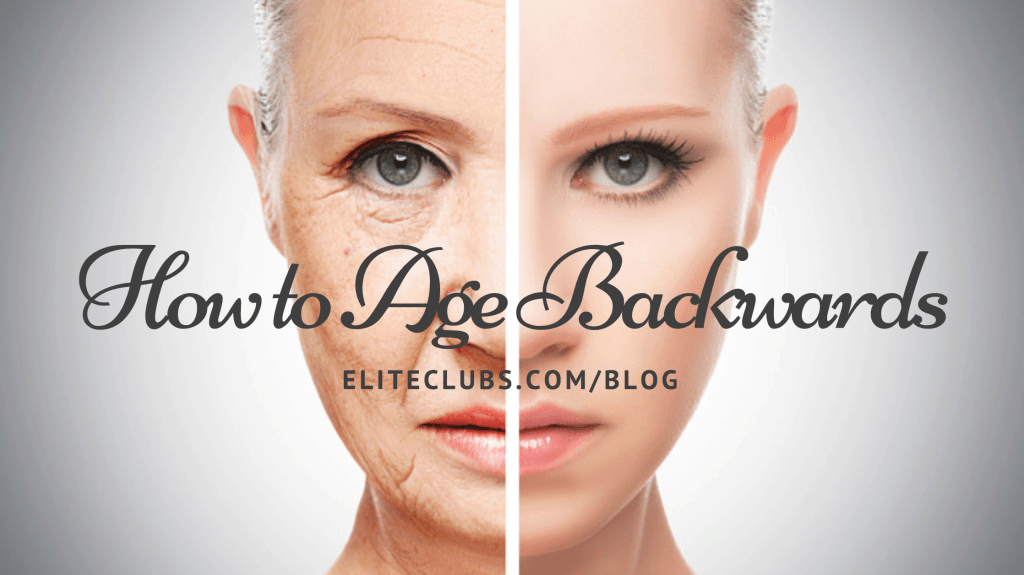
Who wouldn’t want to age backwards? I’m not talking about “The Curious Case of Benjamin Button” backwards, I’m simply talking about turning back those clock hands a few years, keeping your body younger. Is there a way to do that? Can our lifestyle be adjusted such that we can slow down the aging process? If so, how?
The Mechanics to “Age Backwards”
Our bodies have incredible capabilities to heal, staving off the signs and symptoms of aging. Darrick Antell, an assistant professor at New York’s Icahn School of Medicine at Mount Sinai claims you can even reverse the effects of aging. And you can start RIGHT NOW. Current research is focused on telomeres, the caps at the ends of chromosomes that protect our DNA from damage. “Short telomeres have been associated with higher risks of chronic diseases, including diabetes and some cancers,” says Cindy Leung, a researcher at the University of California, San Francisco, School of Medicine. The conclusion is that shorter telomeres can even make us look older. Everyone knows someone who either looks 20 years older than they should, or 20 years younger. So how do we encourage longer telomeres?
Diet & Aging
The Mediterranean diet, rich in fruits and veggies, nuts and legumes, whole grains, fish and olive oil (and even some red wine), has been shown to improve health. Researchers recently discovered that it may be even more effective than other healthy diets at preventing accelerated telomere shortening (Brigham and Women’s Hospital, Boston). De Vivo, the senior author of the study, states “Women on the diet had longer telomeres. Our study showed that it’s possible to take a year and a half off your biological age with modest changes to your diet.” Eschewing highly processed and refined goodies like cookies, cakes, crackers, and sugary soft drinks will also help to give you an edge.
Exercise & Aging
Clearly, exercise benefits you in a myriad of ways. In addition to feeling healthier and stronger, exercise helps you sleep better. The National Institute on Aging states the following regarding exercise and aging “regular exercise and physical activity can reduce the risk of developing some diseases and disabilities that develop as people grow older. In some cases, exercise is an effective treatment for many chronic conditions. For example, studies show that people with arthritis, heart disease, or diabetes benefit from regular exercise. Exercise also helps people with high blood pressure, balance problems, or difficulty walking.”
Remember the telomeres? The University of California San Francisco has just completed a groundbreaking study that shows that lifestyle changes like exercise does lengthen telomeres, in effect making your body younger. Led by Dean Ornish, MD, the study followed a group of 35 men with localized early stage prostate cancer. They introduced dietary changes and added exercise. The data collected was then compared to a group of 25 men who were asked not to make lifestyle changes. The group of 50 experienced statistically significant increases in telomere length (10%!), while the control group lost 3%. Ornish states that while this study focused on cancer patients, there are useful implications for the broader population.
Other Tips to Help You “Age Backwards”
What other things can you do to help your body stay young? Limiting alcohol helps because too much of it not only provides excess sugary calories, but also stresses your liver. Be sure to get enough fluid and stay hydrated—this helps with keeping your skin looking healthy, and flushes out impurities and toxins. And finally, get enough sleep. Your body needs repair time, in order to replace those older cells.
Set up a Free Fitness Consultation
Written by Melissa Abramovich, ACE CPT, NASM CGT, AAHFRP Medical Exercise Specialist at Elite Sports Club-River Glen
Melissa Abramovich went into Personal Training and Group Exercise instruction after successfully losing 140 pounds through healthy diet and exercise. Her desire to help others drove her forward into a career helping others to make healthier choices. She is an ACE certified personal trainer and now also a Medical Exercise Specialist (AAHFRP), helping clients with a myriad of health issues at Elite Sports Clubs. She holds a Bachelor’s degree, and many group exercise related certifications as well.